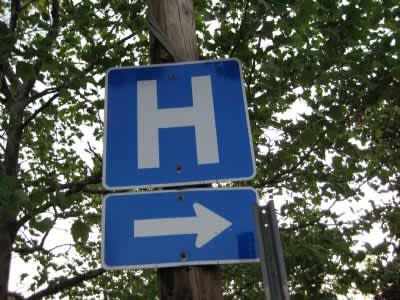What to do if You’re Injured While Traveling Abroad
Agnieszka Spieszny 10.28.11

On a highly successful two month backpacking trip around Europe, my two friends and I experienced only a few harrowing afflictions, but none that severely jeopardized our trip. Two cases of tonsillitis, a sinus infection, and a stress-fracture in the foot were the sum total of our agonies. Two boys we met were hospitalized for days because of severe food poisoning. Here’s my advice to you about seeing treatment so that ailments like ours don’t ruin your overseas hiking or hunting trip.
The best thing you can do to prevent any financial or legal problems is secure traveler’s health insurance. Traveler’s health insurance covers you only for the duration of your stay abroad.
Your trip length, age, coverage choice and more factors all determine the cost of your plan. One advantage of traveler’s insurance over your regular provider – it won’t break your bank. I use HTH Worldwide for longer trips where plans start from $16 for the bare-bones minimum. For short ventures I typically purchase the traveler’s insurance offered with my place ticket purchase, typically between $60 to $100. Whether health or strictly traveler’s insurance (for lost baggage for example) both choices offer trip protection (to cancel your flight with no fees).
Ninety-nine percent of organized programs like Safari Hunts and ecotourist trips offer health insurance as a standard.

Even without health insurance you are not doomed in another country. Just be more careful about where you go for treatment. Bring a foreign language book to translate your ailments.
If the injury doesn’t require an obvious hospital visit, go to a pharmacy first for any over-the-counter first aid.
To seek out care in a hospital you have the choice of private or public doctors. In a welfare-state country (most European countries) public health is widely available and cheap at the cost of long-waits. Often hospitals will work out payment with your insurer at home. The paperwork may not be worth it sometimes as in poorer countries where paying out-of-pocket for even ER services may be less than your co-pay at home.
The advantage of private doctors is the wait time is usually much shorter and the you receive more personal attention. However, these doctors come with a higher price-tag and may not accept foreign insurance.
Before you buy a plan, double-check that it covers everything you predict may happen. If you’re hiking make sure it covers self-sustained bodily injuries or animal attacks. If you’re hunting make sure it covers weapon-related injuries. Read the fine print carefully or call and question the company with your specific concerns. For example, your traveler’s health insurance will NOT cover your expenses if you injure yourself on a rented motorbike if you do not have that a permit or license to ride one in that country – even if you legally rented it. Some won’t cover you even if you were just the passenger.
If you are out in the field and do not have access to any treatment center, look for your situation-specific survival technique here.

